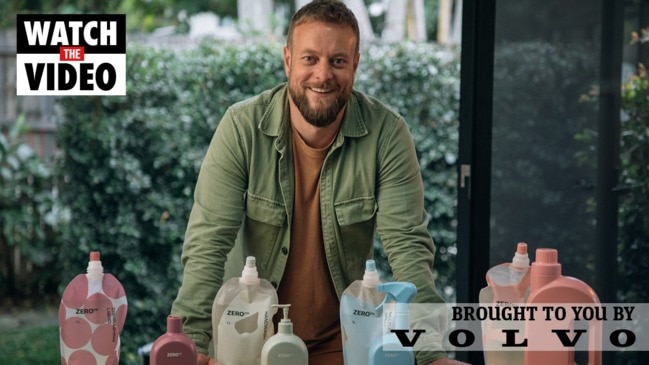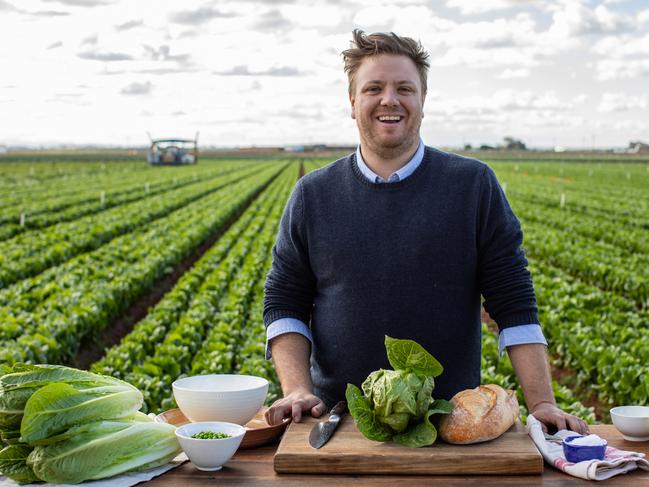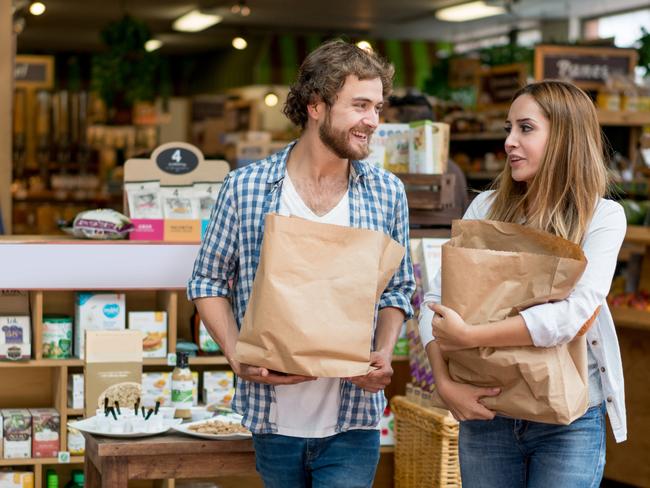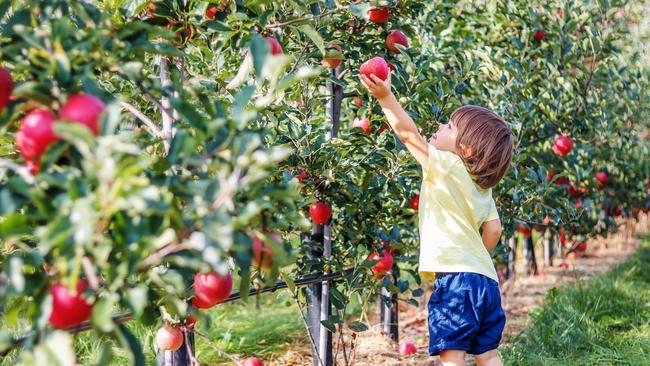Top five tips for a greener grocery shop
It’s three years since Australia’s two major supermarkets banned plastic bags, but bringing your own bags now is just one step towards a greener shop.

Home
Don't miss out on the headlines from Home. Followed categories will be added to My News.
Many of us have been there - standing in the checkout line when we guiltily realise we’ve forgotten to bring a bag.
Masterchef runner-up Michael Weldon has developed a fail-proof hack to avoid this scenario, keeping a stash of reusable shopping bags on his work desk, in the car and by the front door. “They’re always at the ready, along with my mask,” says Michael, who lives in Melbourne.
It has been over three years since Australia’s two major supermarkets banned plastic bags, prompting an 80 per cent drop in their use nationwide, but bringing your own bags is just one step towards a greener shop.
A development chef and Coles ambassador, Michael says it comes down to being more mindful of what we buy, how we use it, and how often we shop.
“It’s something I’m constantly working on,” he says.
“By being conscious of how I shop, I’m making sure I do better for the planet.”
Along with keeping those bags handy, here are Michael’s top five tips for a greener grocery shop.

1. Buy less, more often
When we all reach for the milk or yoghurt at the back of the supermarket fridge, we may be condemning older, perfectly fresh products to waste. Michael suggests buying smaller quantities of perishables, more often, so we don’t need to shun those with a shorter shelf-life. Shopping more frequently also enables you to buy reduced ‘quick sale’ items.
“I don’t mind seeing a markdown sticker,” Michael says.
“I’ll often cook it that same night, it’s still safe to eat, so I might as well save a few dollars.”
2. Mind the small stuff
Of the 3.4 million tonnes of plastic used annually in Australia, just 11.5 per cent is recovered, according to the latest Australian Plastics Recycling Survey.
REDCycle collection bins are available in most major supermarkets, where you can drop off your soft plastics, to be reinvented as playground equipment, fence posts, road base and more. “It can be as simple as saving the plastic wrap from your meat tray,” says Michael.
Plastic produce bags can be eliminated altogether, either by bringing your own lightweight mesh bag, or keeping your produce loose.

“I’ll just give it a quick wash,” Michael says.
“A damp chux around your herbs will keep them fresh in the fridge.”
3 Shop seasonally
If maximum freshness isn’t incentive enough, buying what’s in season is also a boon for the environment, with less resources consumed in transporting and storing it.
“It supports the farmers and is good for your back pocket,” Michael adds.
“Right now, asparagus is getting to the end of its season, it’s at its cheapest and tasting its best. We also have a glut of avocados.”
A little creativity will help you get maximum mileage from in-season ingredients.
“Stone fruit is great grilled on a barbecue, in a salad, and pairs so well with pork and chicken,” Michael says.

4. Relish rejects
Up to 40 per cent of crops are rejected for cosmetic reasons, according to the Fight Food Waste Cooperative Research Centre, and marketing ‘ugly’ produce has been part of the solution.
“If you’re grating a carrot into your spag bol, or making a pumpkin soup, you don’t need the vegetables to look beautiful,” says Michael.
Mastering secondary meat cuts is another way to maximise underrated ingredients. Michael suggests slow-cooking beef shin in a ragu or curry, where the connective tissue will add sticky richness to the sauce.
Similarly, fish wings - the fleshy underside of a fish, attached to its fins - are a flavoursome alternative to fillets.
“Barramundi wings are grossly overlooked,” says Michael.
“They’re great marinated in soy, sesame oil, ginger and garlic.”

5 Savour your scraps
Save your stems, peels, outer leaves and limp vegetables to repurpose into a stock, suggests Michael.
“I keep them in the crisper and boil up a stock at the end of every week,” he says.
“You can add bones from raw or barbecued chicken. It’s a great base for a soup or risotto.” An organised fridge and pantry will help you keep on top of everything you have, and Michael suggests planning your weekly menu around using it all up.
“Extra sauce from last-night’s curry can be poured over steamed vegetables and rice the next night,” Michael suggests.
“If you’ve used basil in a recipe one night, you can make a pesto pasta sauce for dinner later in the week.”
More Coverage
Originally published as Top five tips for a greener grocery shop





